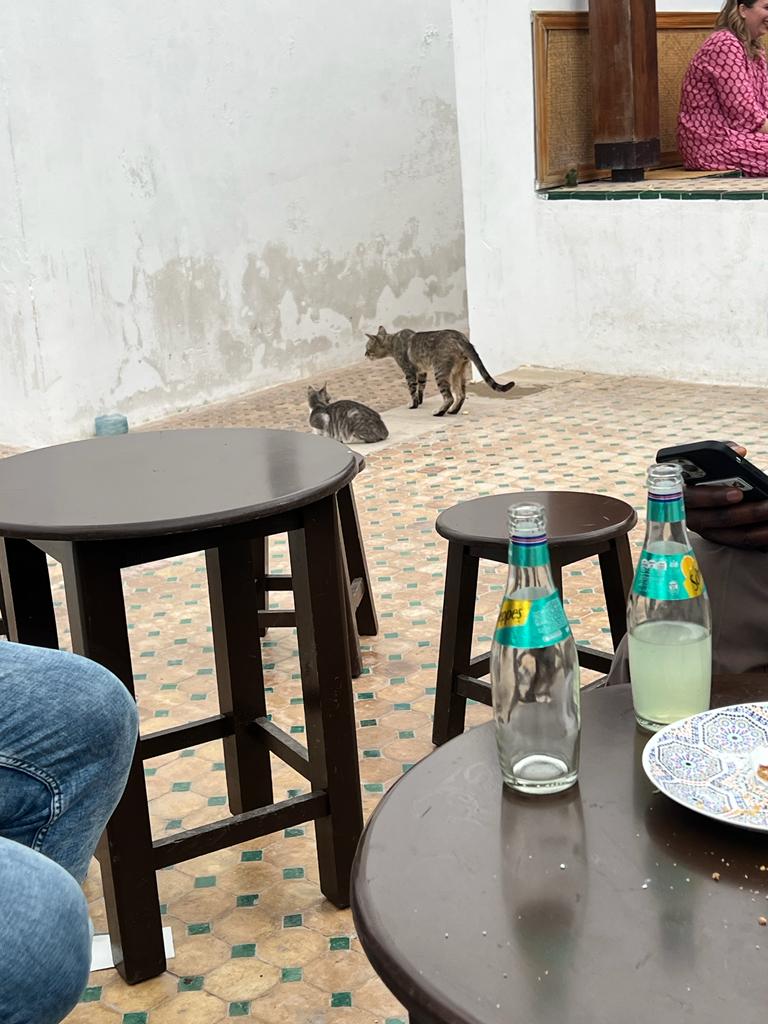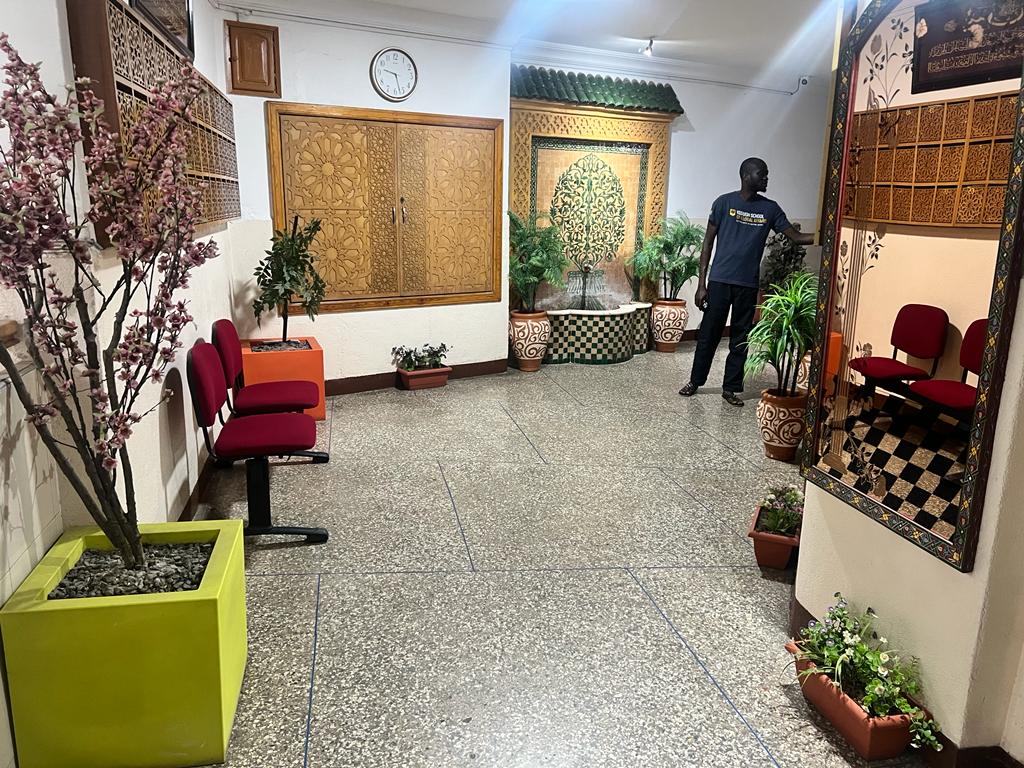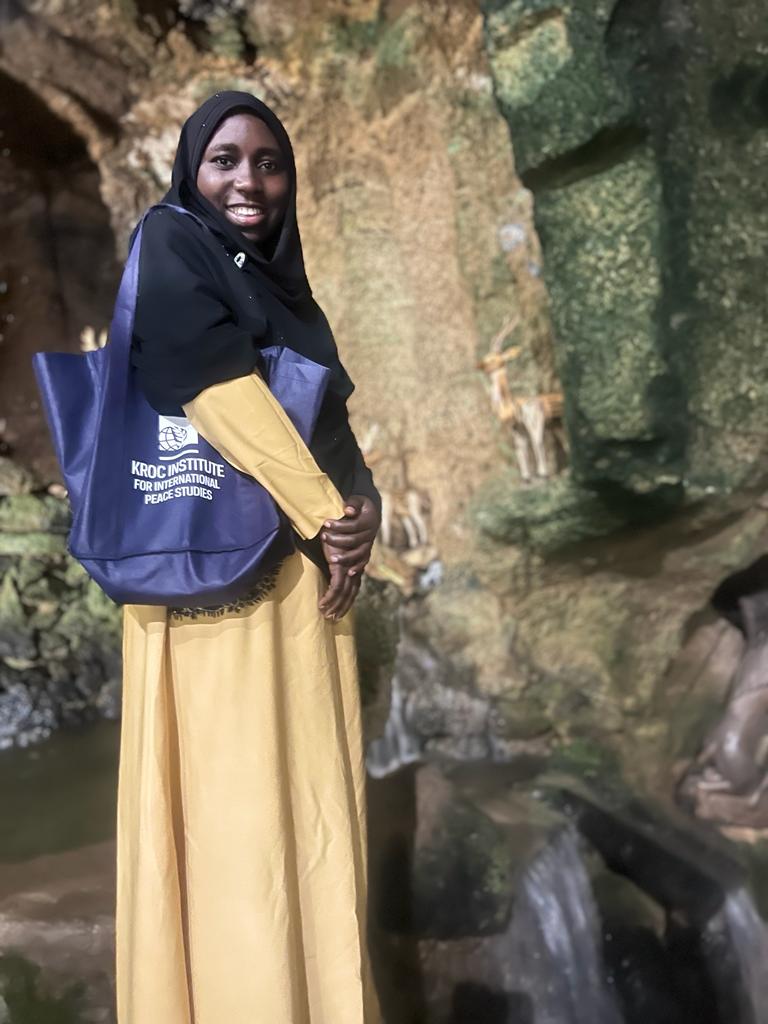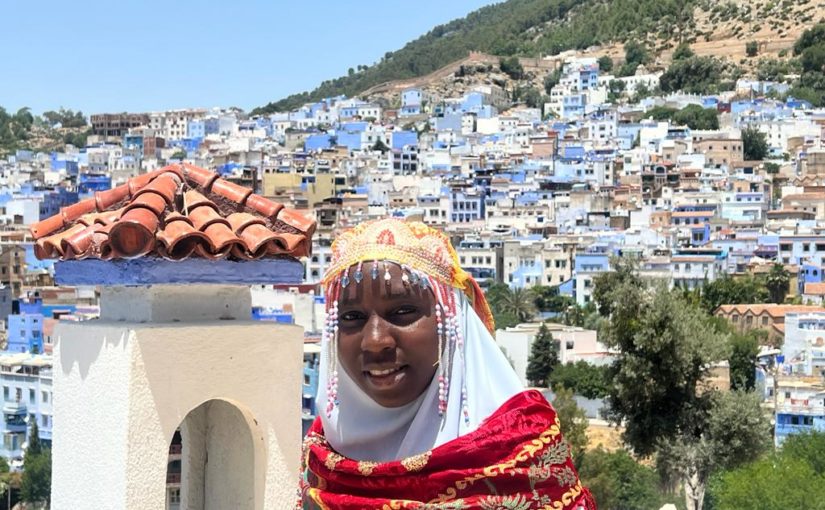For my summer language abroad program, my Arabic language institute is based in Rabat, the capital city of Morocco. Something remarkable about the experience is that it is more than learning Arabic in the classroom, but also learning about the people, the culture, the similarities, the peculiarities, and also the challenges. Hence, most of my weekends were dedicated to exploring the city of Rabat or traveling to other places in the country. Here are five things I love about the country!
- Cats: If you love cats, you would love Morocco. My first daughter made me fall in love with cats as she adores them. On a typical evening, when I decide to take a stroll in the neighborhood, I may count up to 20 cats. I asked my teacher about it, and he said there are even fewer cats in Rabat, and I would most likely see more if I went to the villages, as most households have at least 5 cats. It is usually a beautiful sight to watch the furry babies gathered in circles around the neighborhood.

- Family Life: This, I noticed first when I visited the city of Tanger in the northern part of Morocco, and while I later noticed the same in Rabat, it is more prominent in other places, probably because Rabat is a capital city. I noticed that in the evenings, especially from Friday to Sunday, families would gather in nearby parks, having picnics, playing, and just having fun. I found this fascinating as it appears to me to be a very good way of building social cohesion in the communities. Almost everyone in the neighborhood knows one another as they meet in the community park almost weekly – grandparents, fathers, mothers, and children. You would easily see the older ones sitting in groups talking, teenagers and children playing soccer, tennis, or some other kinds of games, mothers chatting happily while keeping an eye on the children, and the fathers also having their own chats. It is usually a beautiful sight to behold.
- Multicultural: I first caught a glimpse of this while still in the US. Often, when I tell people that I got the SLA grant to study in Morocco, the usual response is ‘French or Arabic?’ Upon getting to Rabat, I realized how prevalent the French language is in the country. A lot of Morrocans are bilingual or multilingual, speaking a combination of Arabic, Darija (Moroccan Native Arabic), Amazigh, French, Spanish, and English amongst other languages. In Rabat, while grocery shopping or interacting with a taxi driver, or dealing with other locals, I noticed that they often start by speaking to me in French. This, I later got to know, is because a lot of Balck people domiciled in Morocco are from Francophone African countries. My colleague at the Arabic institute, who lives with a host family, once remarked that his host family has three children, the youngest who is in elementary school comes home with homework in Arabic, and the child in middle school comes home with homework in French, while the highschooler comes home with homework in the English language. Knowing how beneficial it is to be multilingual, I particularly love the multilingualism of Morocco. The challenge with this for someone who has come to the country specifically to learn Arabic is that you have to be intentional about speaking Arabic with locals, otherwise, you would just continue conversing with locals in English and/or French.
- Trees: I love nature, and Morocco has it in abundance. Often, my colleagues would arrange for us to go to the beach to go watch the sunset. But something that struck me and which I really love is the abundance of trees and greenery everywhere. I observed for days and could conveniently conclude that every building between my house and my language institute either has a tree in front of it, or flower pots with various small trees, shrubs, and flowers. This is not only beautiful but also very good for the environment.

- Eco-consciousness: The issue of climate change and sustainability has been at the forefront of global discourse with many countries committing to making efforts to be more eco-conscious and take steps toward preserving the earth’s resources. I was very impressed when I arrived in Rabat and I did not find a lot of plastic waste around. Back in the US, I am quite used to being given plastic bags when grocery shopping, and a typical trip to the store can leave me with up to a dozen plastic bags that I have to make a conscious effort to recycle or it may end up in the ocean. In Morocco, the first time I went grocery shopping, I was expecting the attendant to pack my things when she asked for my shopping bag. I didn’t have any, so, I had to pay for a reusable shopping bag for my grocery. Where it is provided, it is usually brown paper bags or light recyclable bags So, I learned to always go shopping with my shopping bag, and my tote bags from school came in very handy.

